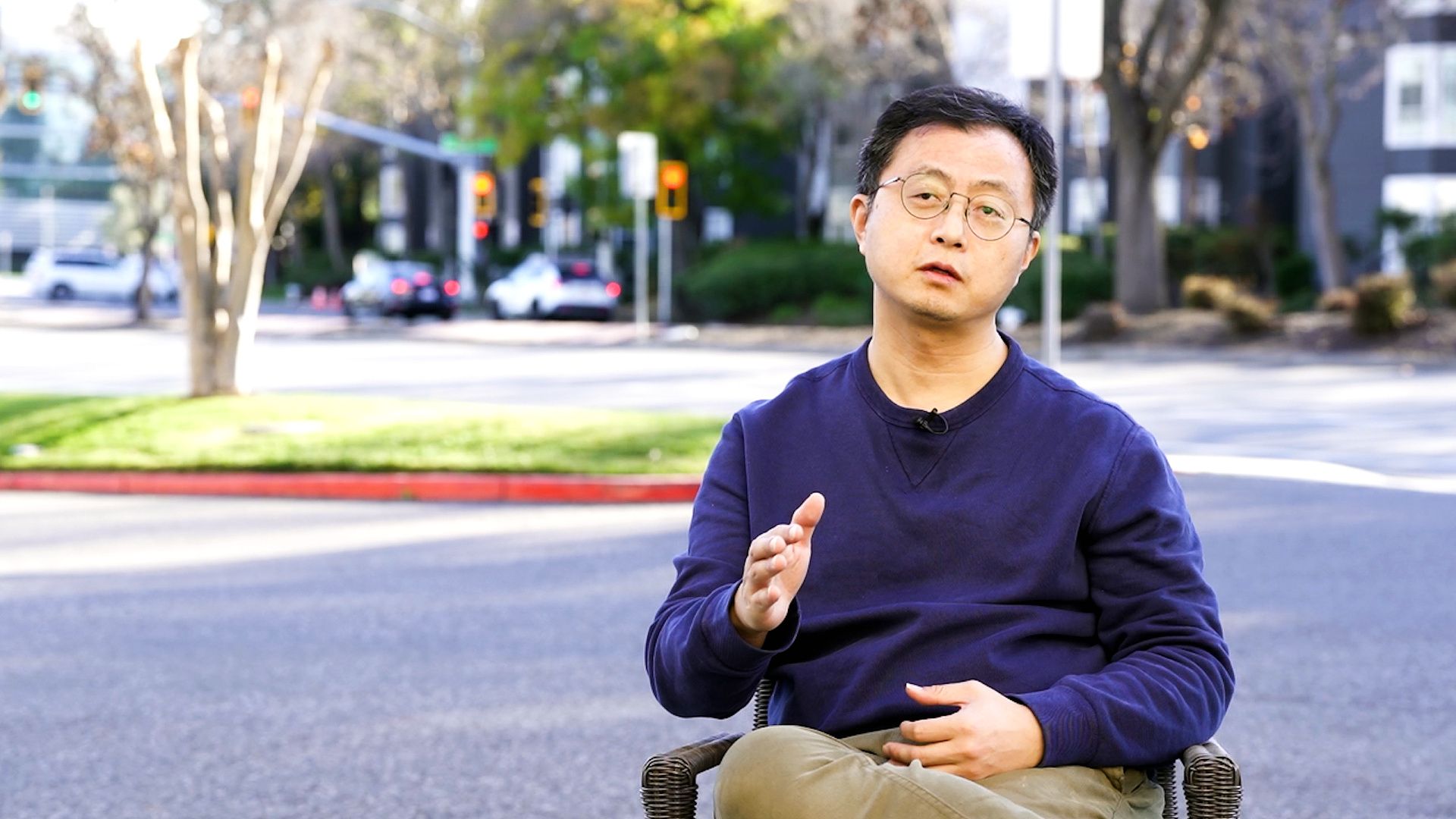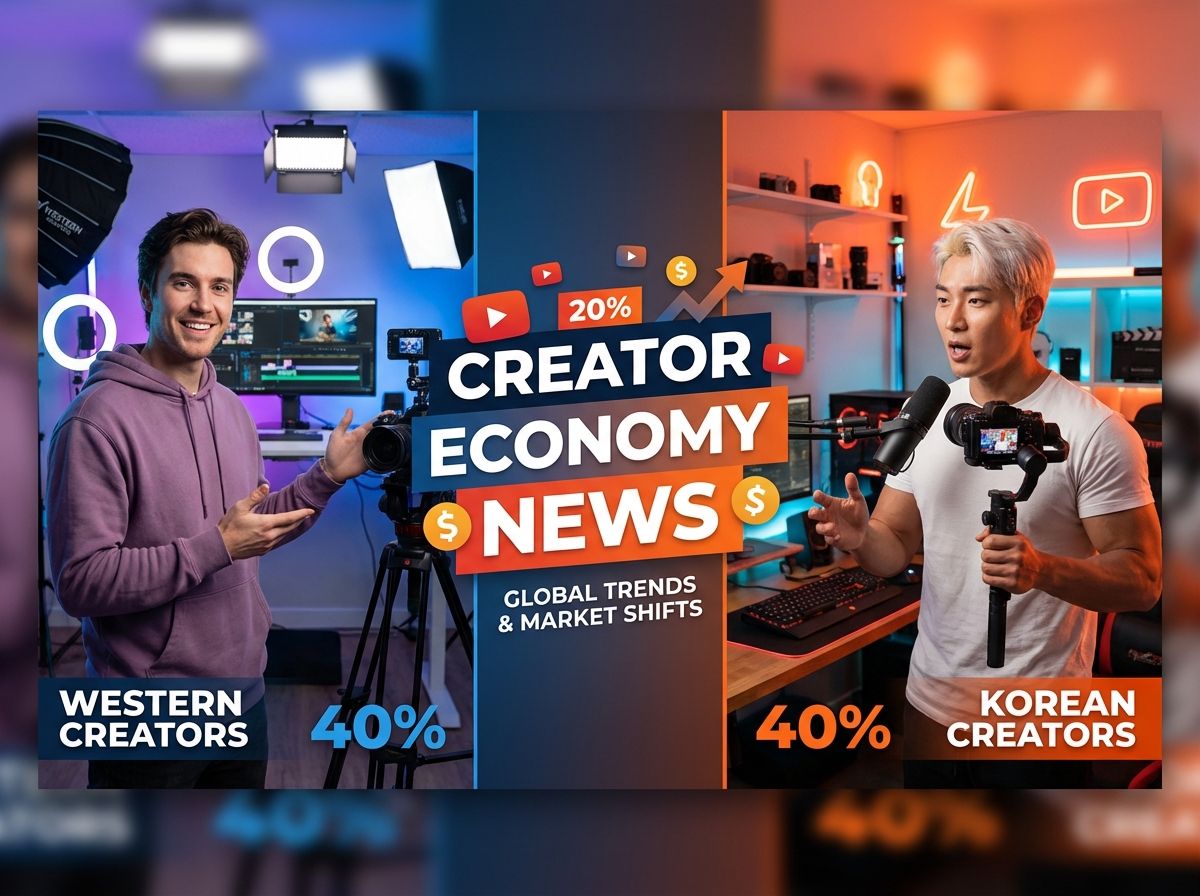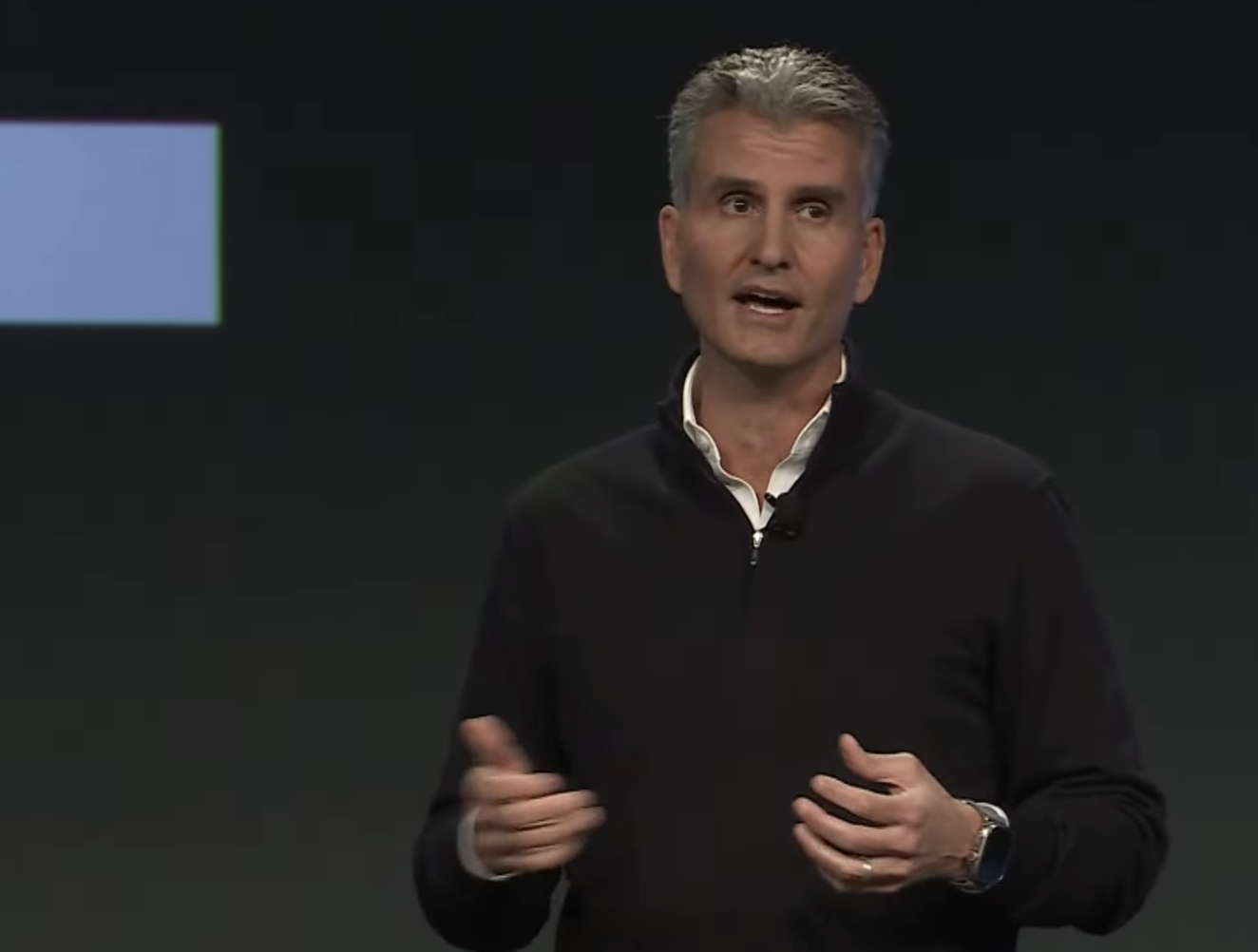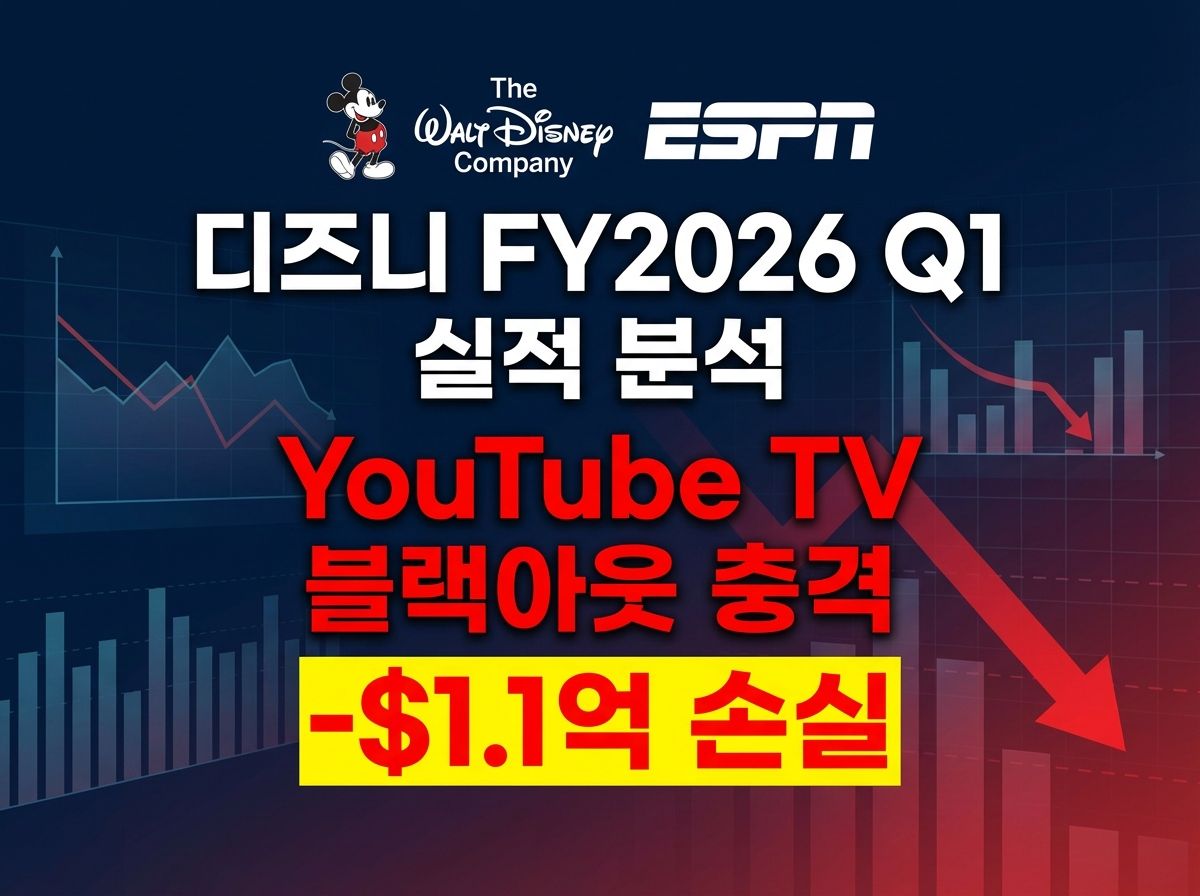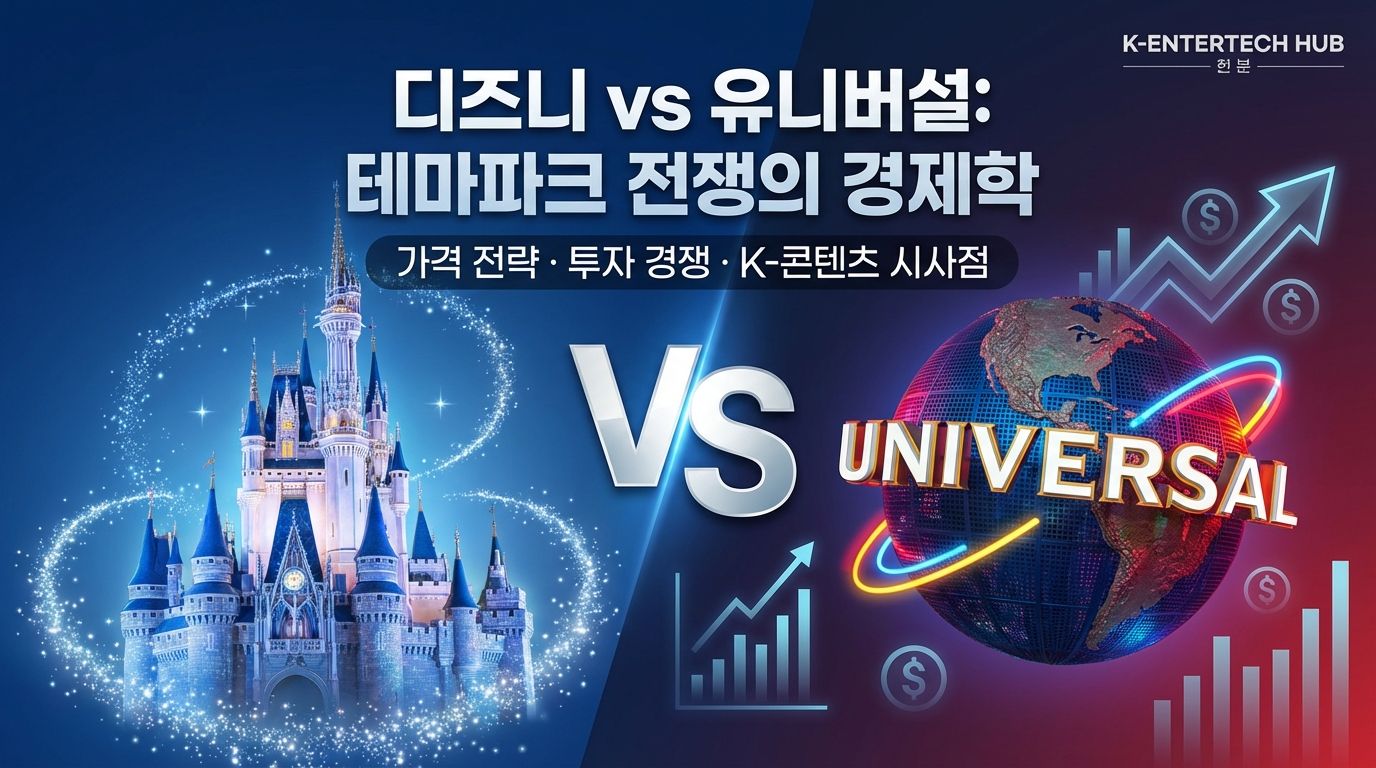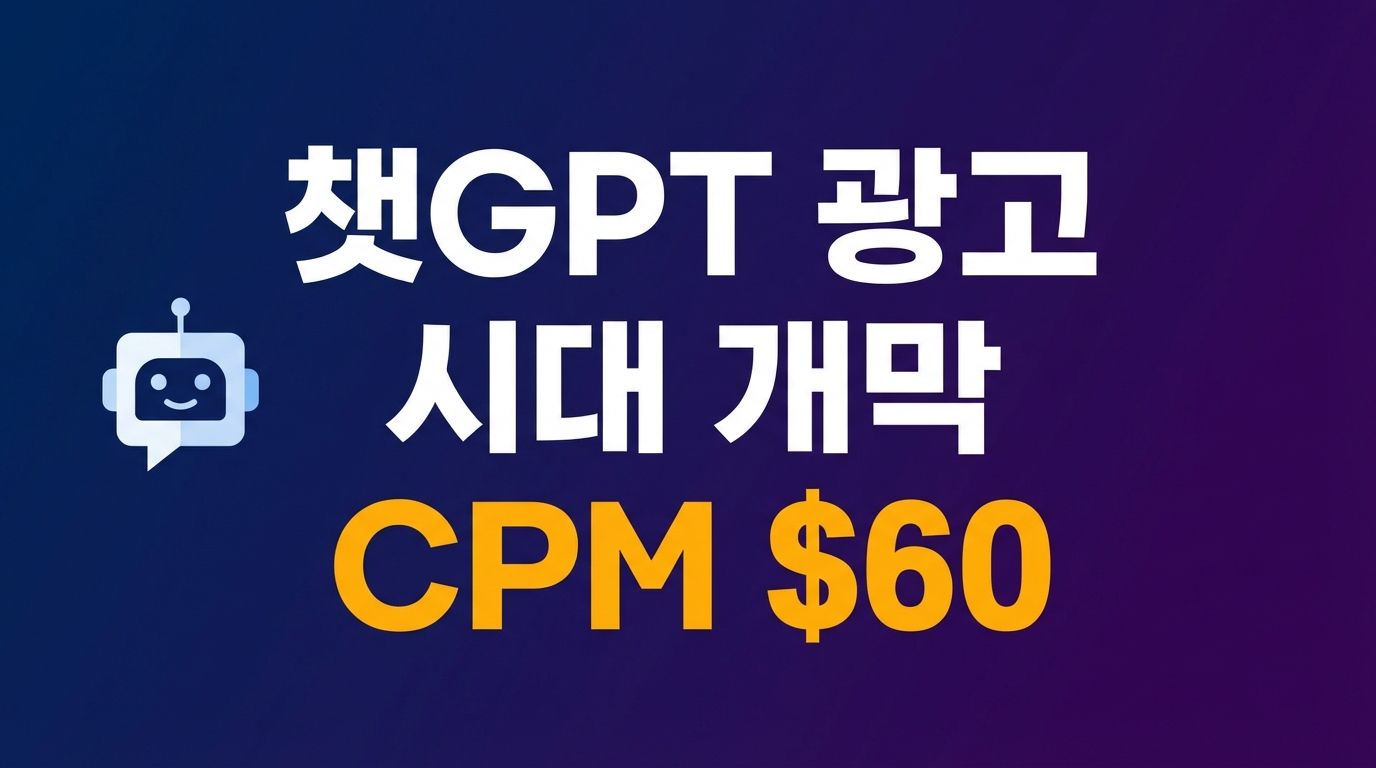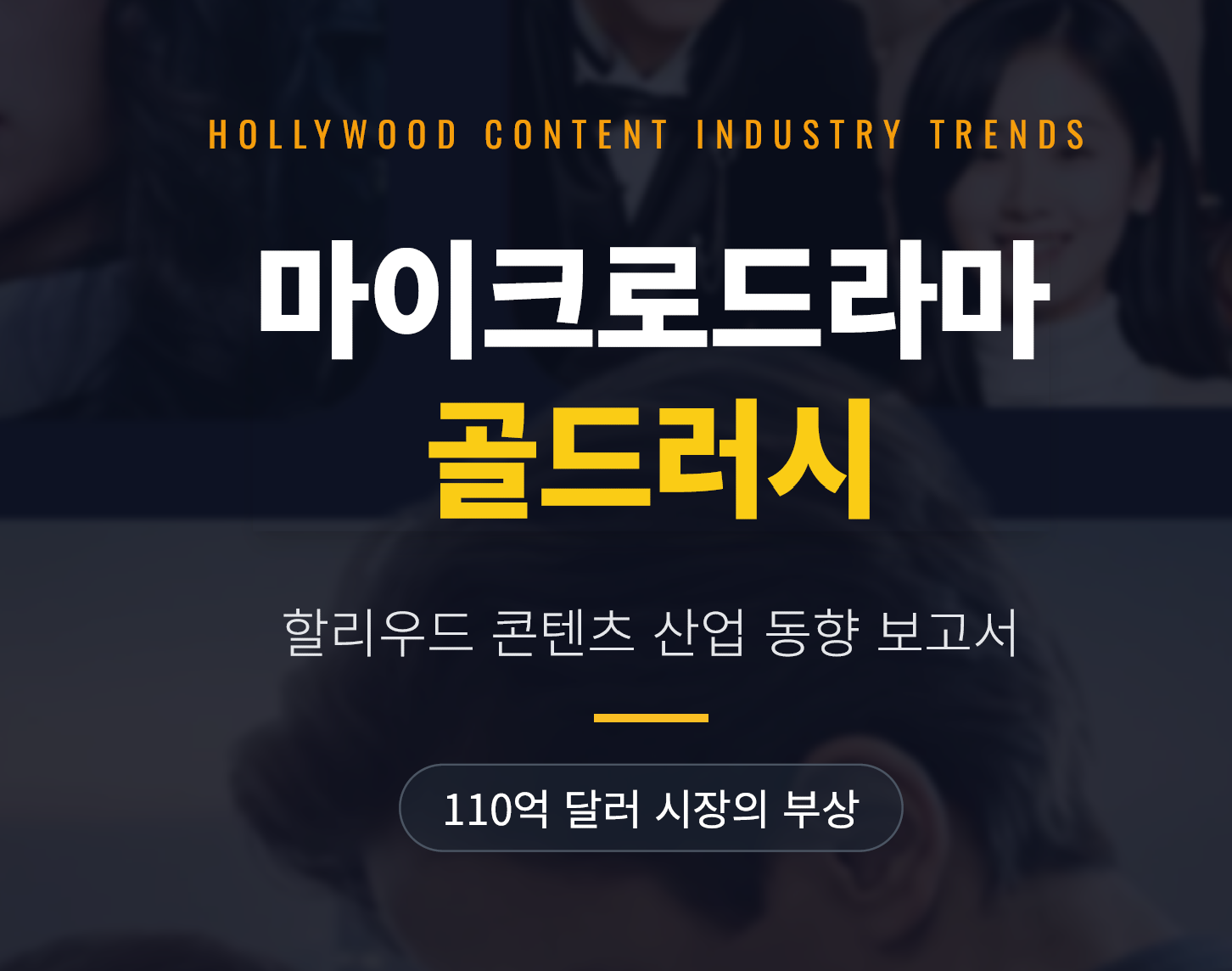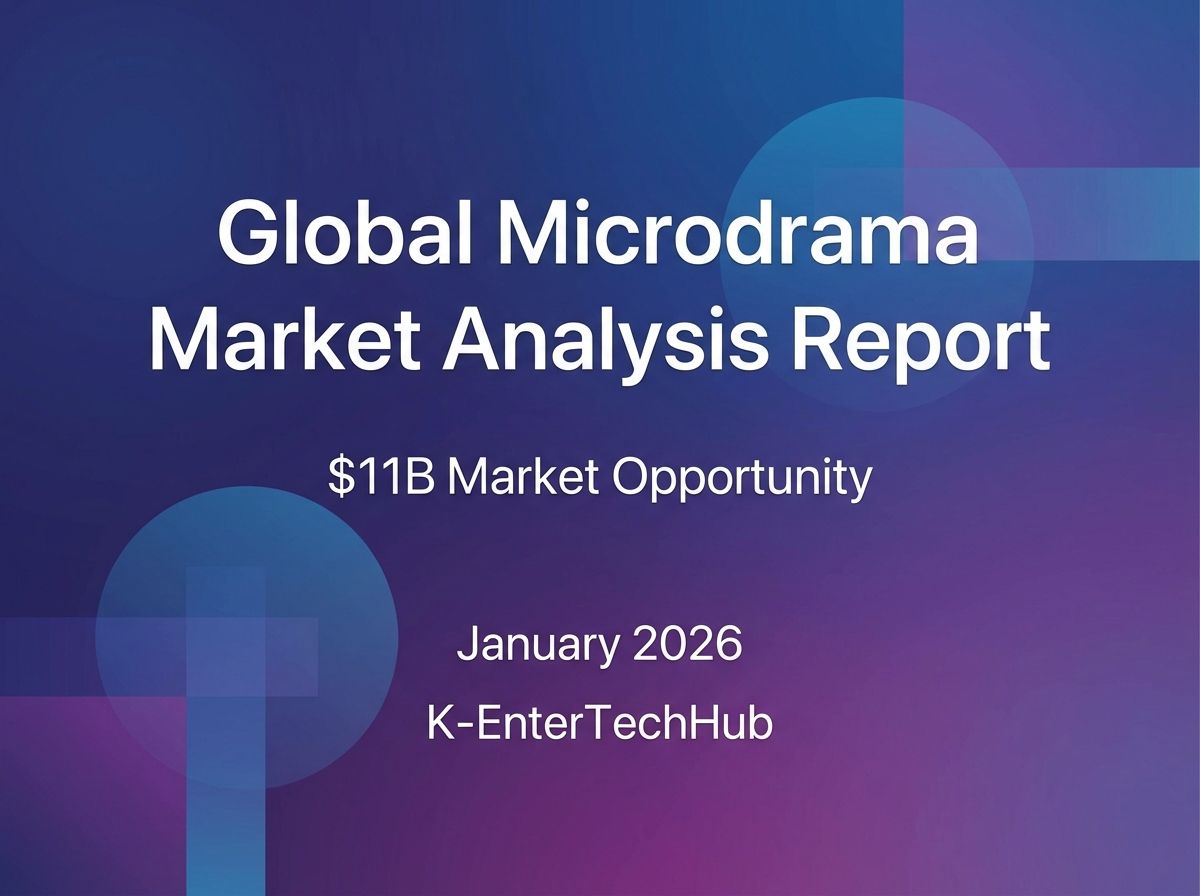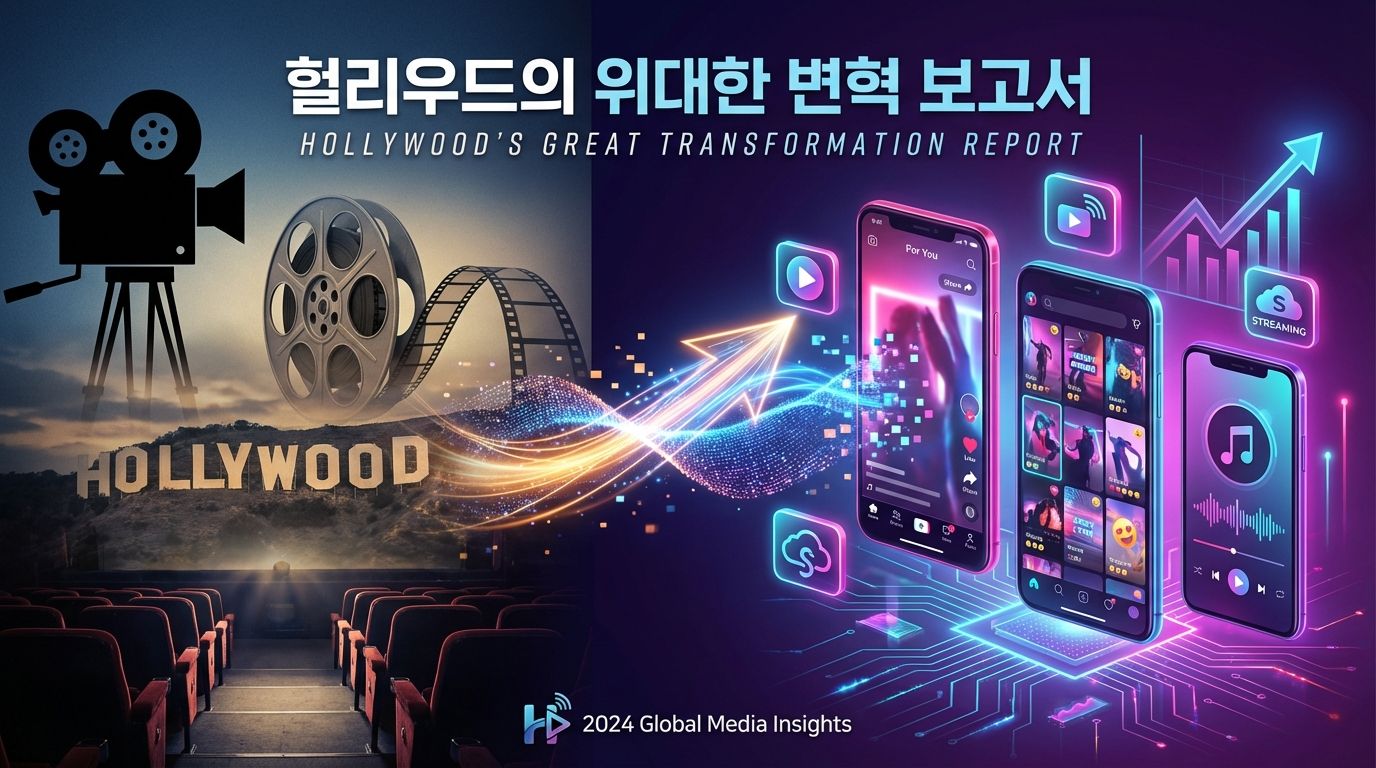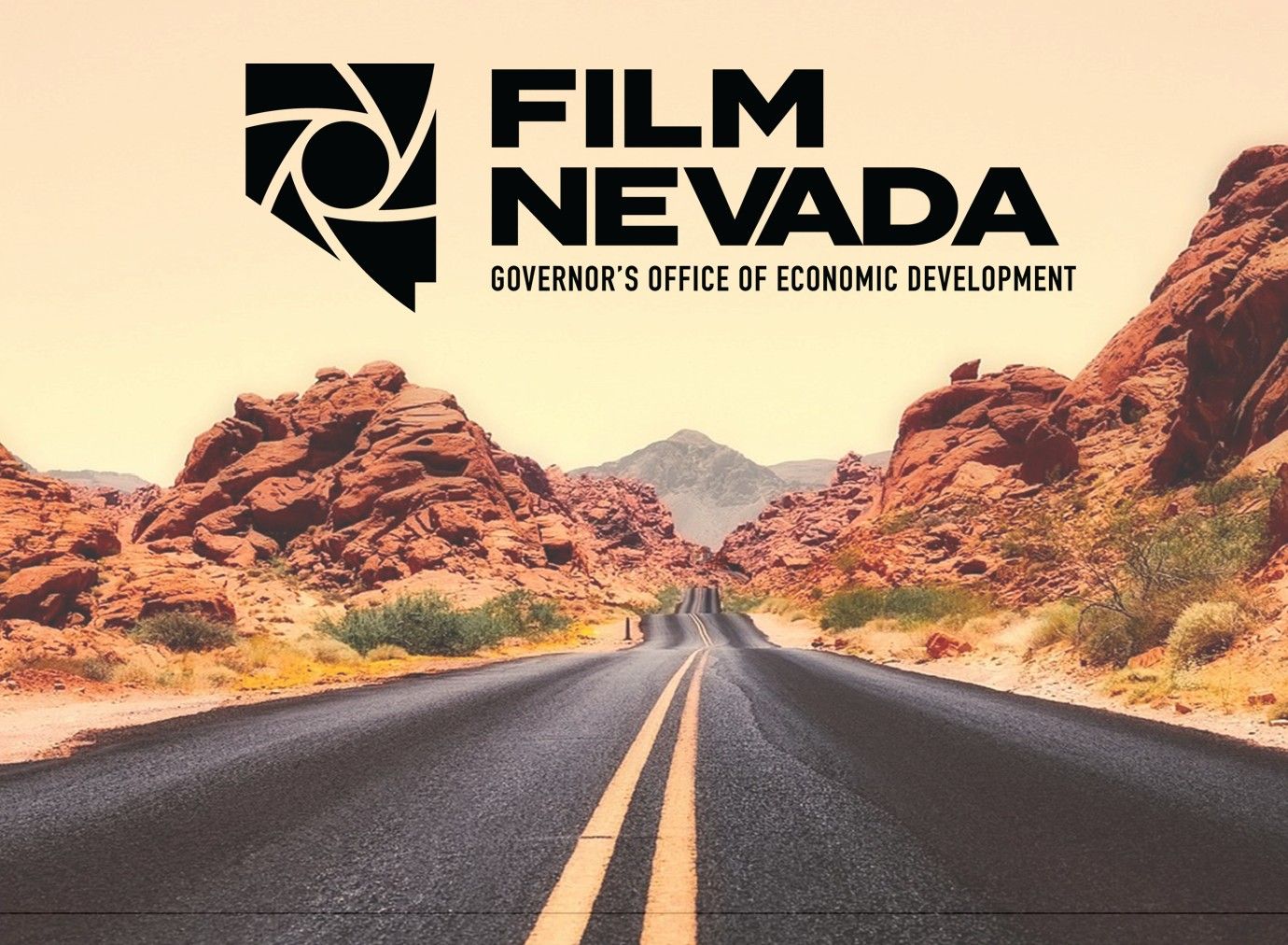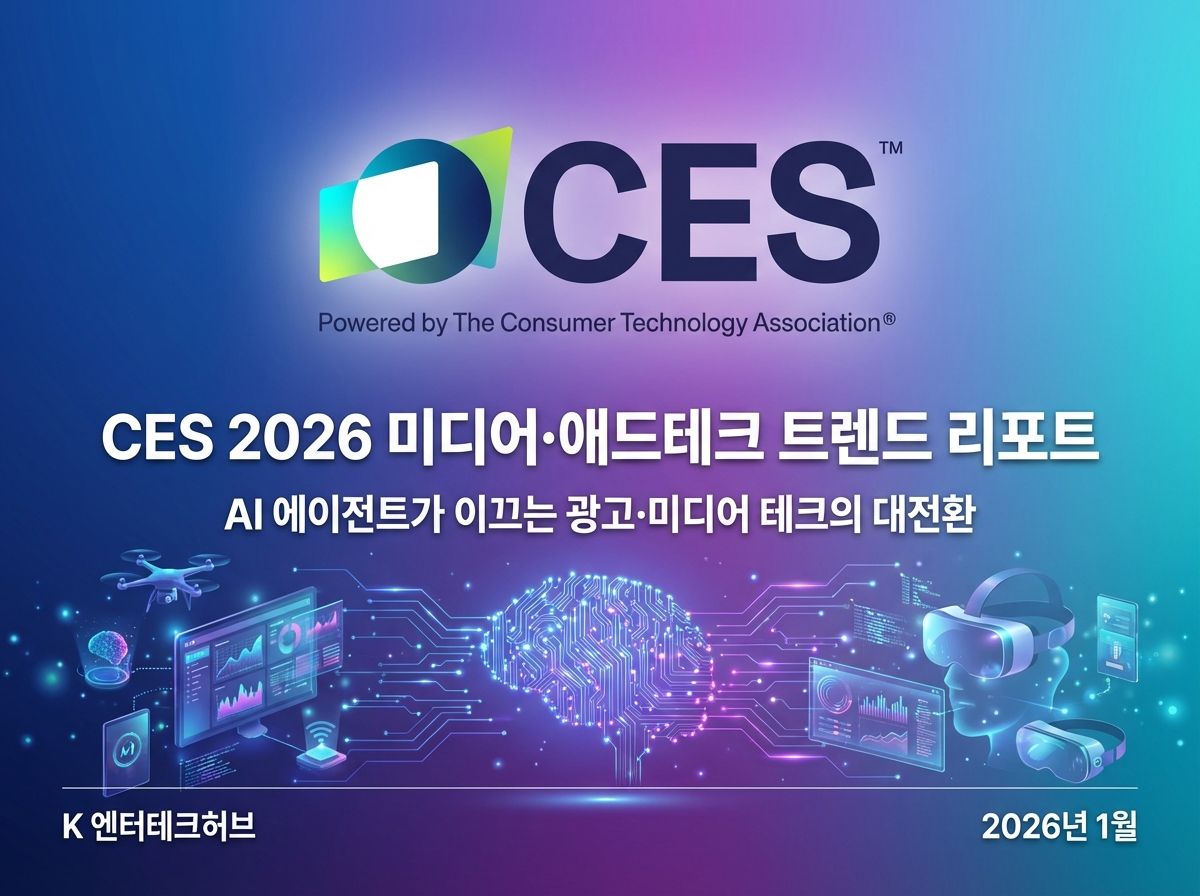"Southeast Asian Nations Were Delighted": Korea's 'Next Hallyu' Strategy Wins Hearts at AI CON 2025
"Southeast Asian Countries Were Delighted"... 'Next Hallyu' Strategy Unveiled at AI CON 2025
Distinguished Professor Samseog Ko of Dongguk University Presents Co-Evolution Strategy in Singapore"Must Shift from One-Way Exports to Exchange and Cooperation"Korean-ASEAN Collaboration Model Receives Enthusiastic Response at World's Largest AI Consumer Festival
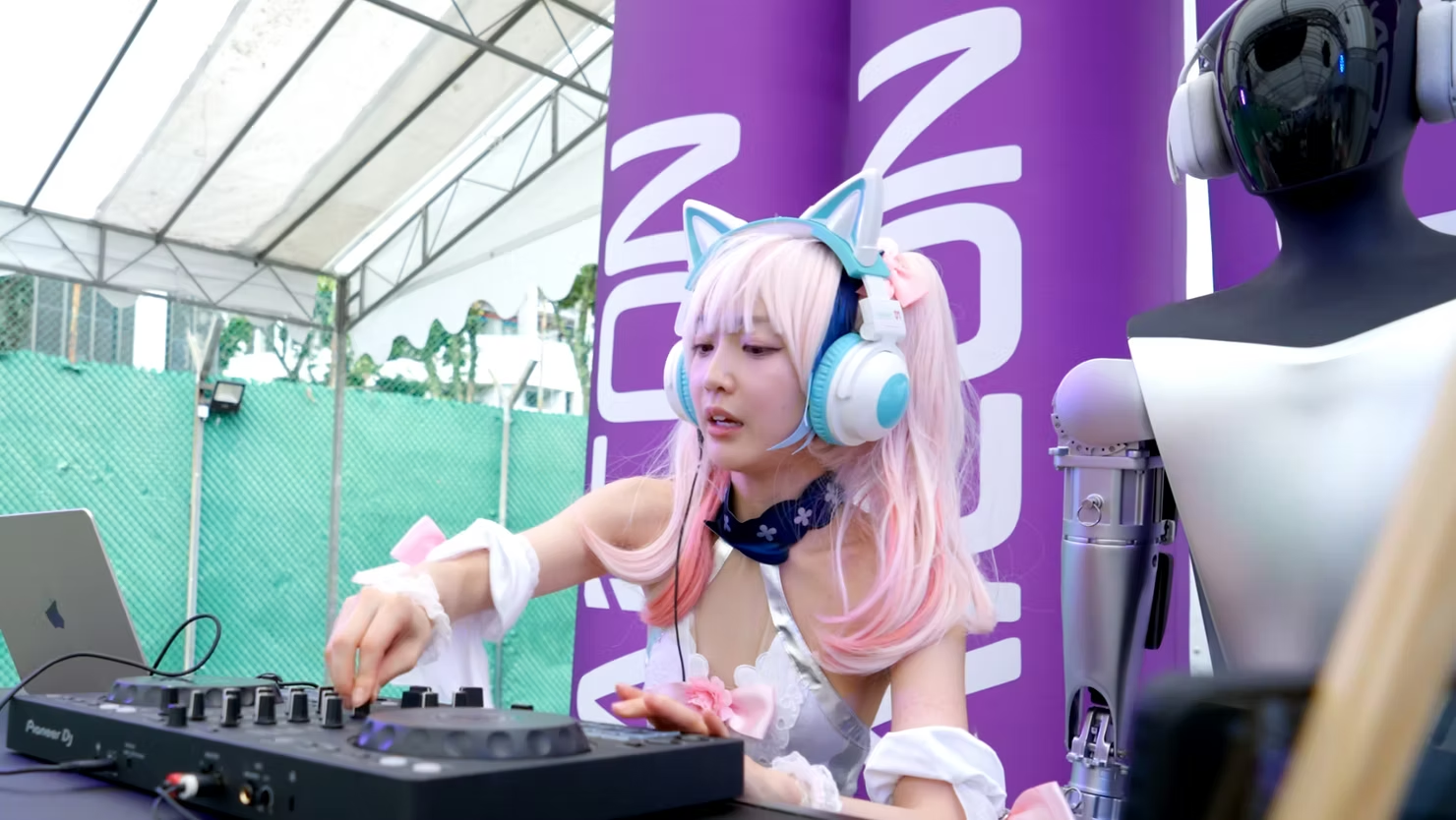
Mr. Samseog Ko, Distinguished Professor at Dongguk University's AI Convergence College and member of the AI Committee, presented the 'Next Hallyu' strategy at AI CON 2025, the world's largest AI consumer festival held in Singapore, receiving an enthusiastic response from Southeast Asian nations.
In an interview with K-Entertech Hub, Professor Ko elaborated on structural innovation measures for the sustainability of Hallyu.
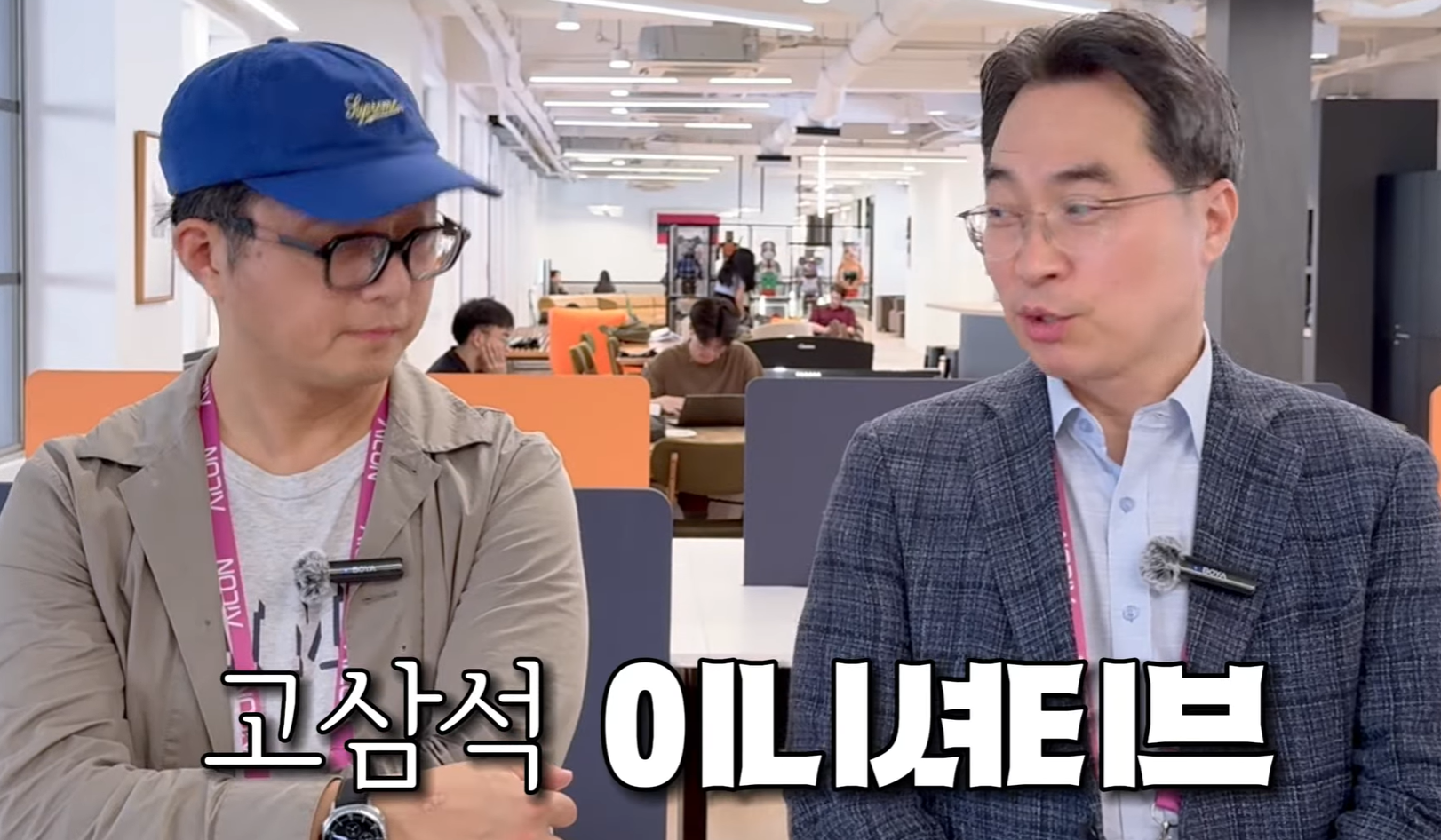
AI CON 2025: Center Stage for Asian AI Innovation
AI CON 2025, held October 3-4 at BeyondX Living Lab & Incubation Space on Keppel Road, Singapore, was Asia's largest AI consumer technology festival under the theme "AI for Everyone," attracting over 10,000 participants, 100 companies and institutions, and 30 brands.
Singapore's Minister for Digital Development and Information, Josephine Teo, delivered the opening address, proclaiming the nation's vision for AI innovation, while the event, linked with F1 Weekend, proceeded in an enthusiastic atmosphere.
The event was organized into three zones (LIVE, WORK, PLAY). The LIVE zone showcased AI technology applications in daily life including health, education, and mobility; the WORK zone covered corporate productivity and business innovation; and the PLAY zone featured the convergence of AI and popular culture through creative content, entertainment, and the GenTube AI Film Fest.
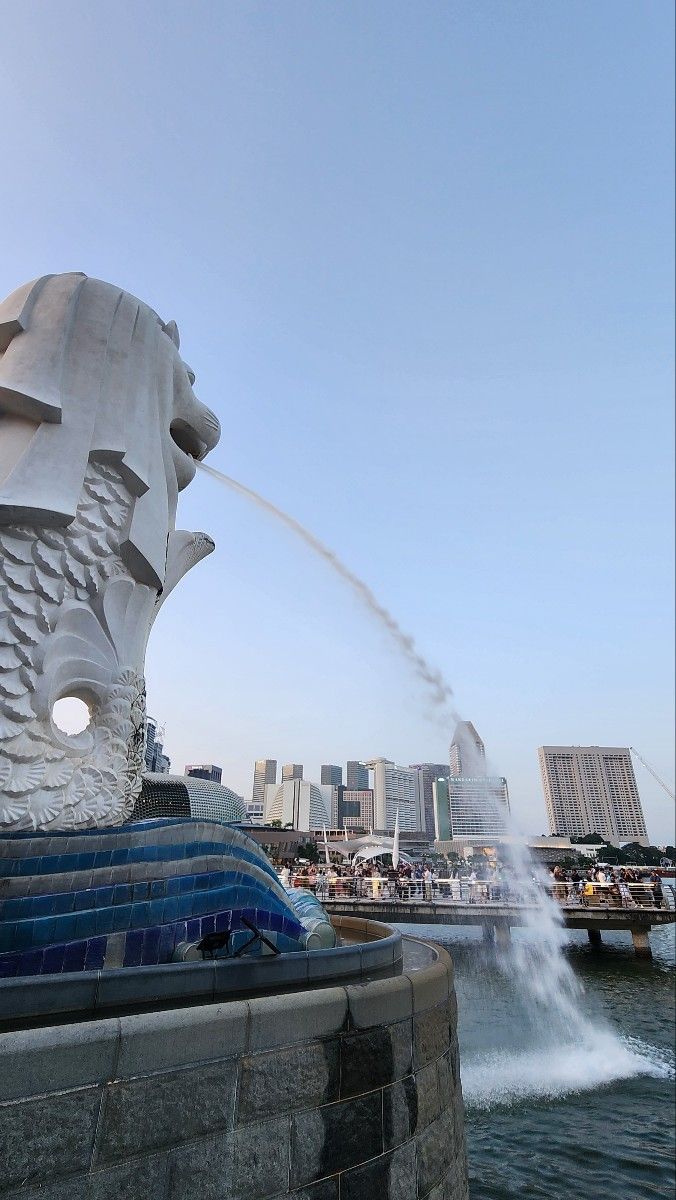
"Southeast Asian Countries Were Delighted with Co-Evolution Strategy"
In his interview with K-Entertech Hub, Professor Ko stated, "I came to Singapore to deliver a special keynote speech at the AI Entertainment Conference. It was an event related to Generative YouTube, or GenTube."
He presented two core strategies from 'Next Hallyu' in his keynote. The first was the Korea-ASEAN content industry alliance and co-evolution strategy, and the second was an innovation strategy based on enter-tech, the convergence of entertainment and technology.
"After it ended, the response from people here was very positive. I realized they were very interested in this. They were particularly curious about the co-evolution methodology."
Mr. Ko said the response from Southeast Asian countries exceeded expectations. "It's not that they hadn't thought about it, but Singapore and other Southeast Asian countries seemed hesitant to make the first proposal to Korea. But when I gave this presentation, they were literally delighted."
Birth of the 'Samseog Ko's Singapore Initiative'
Mr. Ko named this the 'Ko Sam-seog Singapore Initiative.' "I thought, 'This is going to work.'"
He emphasized the need to shift Hallyu's fundamental approach. "K-Culture's entry into the Southeast Asian market was almost entirely one-way export-driven. Of course, there was preference for K-content from users, but clearly our government's policies and the business strategies of content companies and beauty firms were export-oriented.
It had a somewhat one-sided character. Co-evolution means changing the fundamental approach of Hallyu, of K-Culture. Let's shift to exchange and cooperation. It's about developing together."
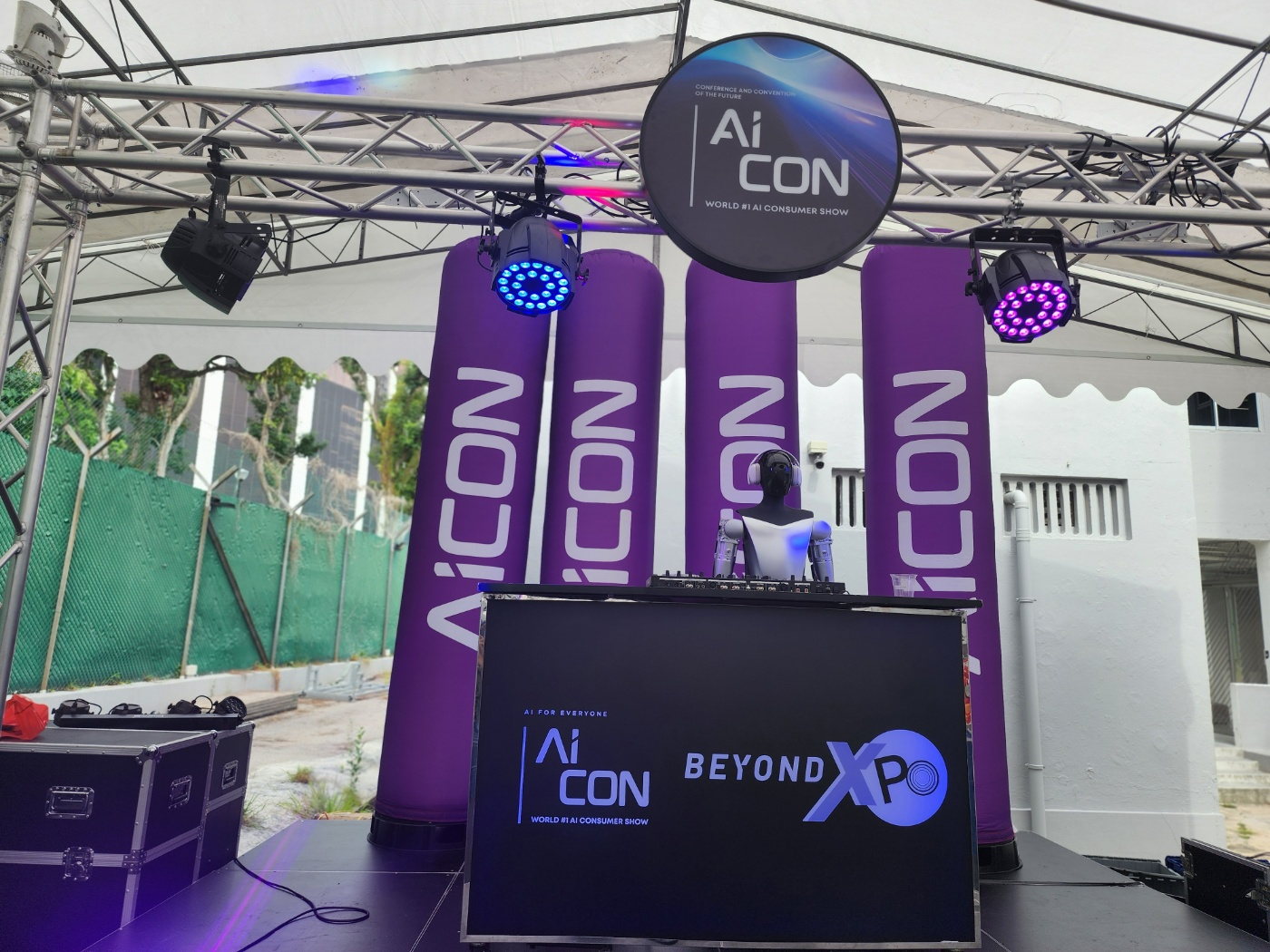
Singapore-Korea: Complementary AI Collaboration Structure
Professor Ko explained the complementary relationship between Singapore and Korea. "For example, joint investment and joint production—because Singapore has sufficient capital. In the enter-tech era, Singapore's global AI national competitiveness ranks 3rd. Meanwhile, Korea ranks 6th."
He analyzed that while Singapore leads in AI, Korea has the advantage in content. "From that perspective, Singapore is ahead in areas like AI, and we can benefit from collaborating with them. Korea leads in the content domain, and Singapore wants to develop that. It's a good structure where both sides can win."
Singapore's AI-related investment in 2025 alone amounts to $27 billion, strengthening its position as an Asian and global AI hub.
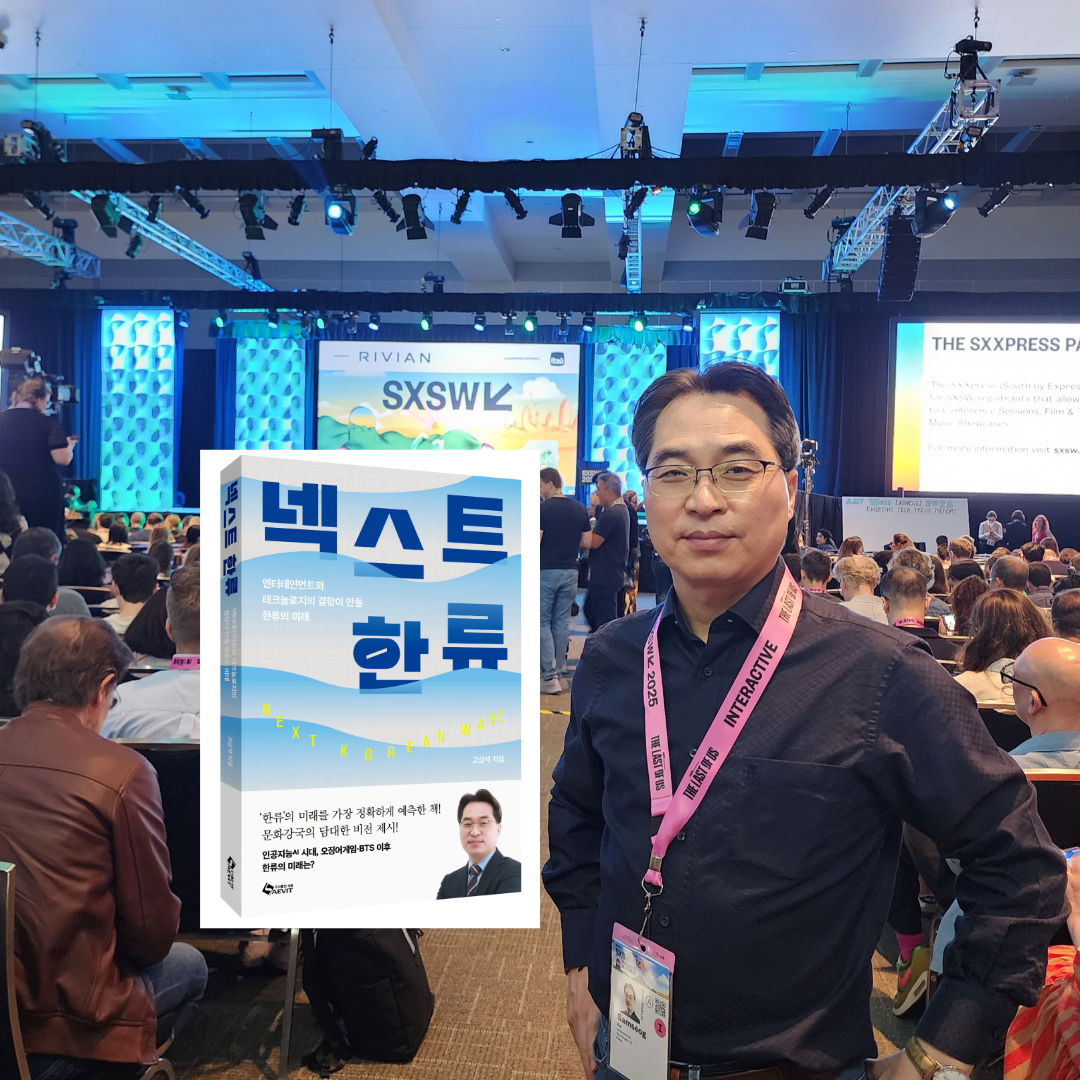
Importance of AI-Based Localization Strategy
Professor Ko explained that AI technology enables balanced collaboration. "When it comes to AI, the co-evolution you mentioned, starting from joint production to various collaborations—isn't it important that this becomes a balanced business? Everyone was interested because it's possible."
"The technologies are all in place as a base, and our goal is to use AI for localization or to help local customers understand and adapt their content to local contexts."
Singapore Government's Active Cooperation
Professor Ko conveyed that the Singapore government's willingness to cooperate was very active. "Singapore has the highest economic level, doesn't it? Although it's a city-state, per capita income is quite high. Observing from Singapore, I got the feeling that they're seriously considering Korea as a partner for collaboration in content industry and AI fields within Asia."
The Director of Singapore's Infocomm Media Development Authority (IMDA) attended in person. "The IMDA Director came, and this person has very high interest in Korea and wants to continue cooperating with Korean companies and the Korean government. So they're participating with great interest in various events held in Korea, starting with the chief. I was surprised."
He shared their experience visiting Korea three years ago. "They visited Korea three years ago and went to virtual studios and CJ. Singapore is actually a hub for virtual production in Southeast Asia. It's close and all the infrastructure is in place. So they're probably preparing another Korea trip next year, and this time AI is the core focus."
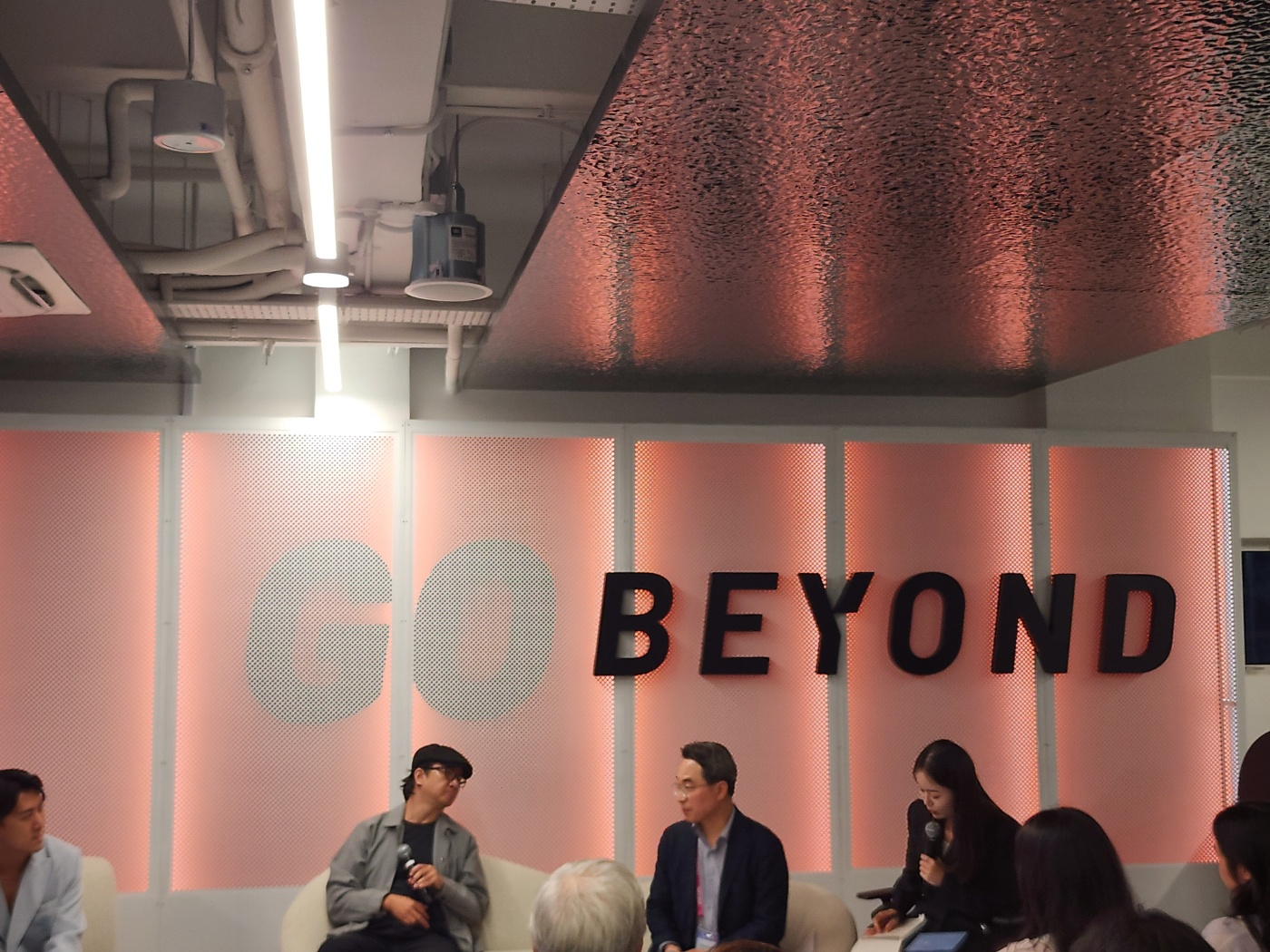
"Too Good" Response to K-Enter-Tech Pavilion Proposal
Professor Ko said the atmosphere at the venue was excellent. "The atmosphere at AI Entertainment was good. Because only countries strong in entertainment and technology can become the protagonists of this revenue model. Of course, Singapore is much stronger in technology, but Korea is thicker in content. From creators to technology, we have it all."
"When I talked about next year and said, 'I hope Korean creator companies and Korean content companies will come and create a K-Enter-Tech Pavilion,' they were so pleased."
Young and Dynamic Startup Ecosystem
Ko emphasized the characteristics of participating companies. "The companies participating are quite young. Young startups and ventures. They seem to be thinking a lot about combining tech and content. So I got a very dynamic feeling."
"Prepare for Hard Times During Good Times"
Professor Ko explained the background for writing his book. "While writing the book, I questioned whether Hallyu would be sustainable. It's not so much a major crisis, but rather that conditions are forming that make structural growth difficult. So I examined this once and raised the question of how Hallyu can be sustainable and grow."
The response locally was unexpected. "As expected, when you come to Asia, especially Southeast Asia, the preference for Korean content is so high that the question is how to utilize that preference and enthusiasm. When you emphasize crisis, people are surprised. Everyone thinks things are good now—why a crisis? It's about preparing for bad times during good times."
Enter-Tech: Core of Hallyu Innovation
Professor Ko emphasized enter-tech. "The content industry has continued to grow. The background of that growth is innovation. K-content got to where it is because we innovated in how we produce, distribute, and consume it. Let's innovate once more. With what? With enter-tech."
"Consumers enjoy content in various ways. Earlier I saw a chess-playing robot. I think technologies that increase contact points, reduce production costs, and coexist with humans are possible."
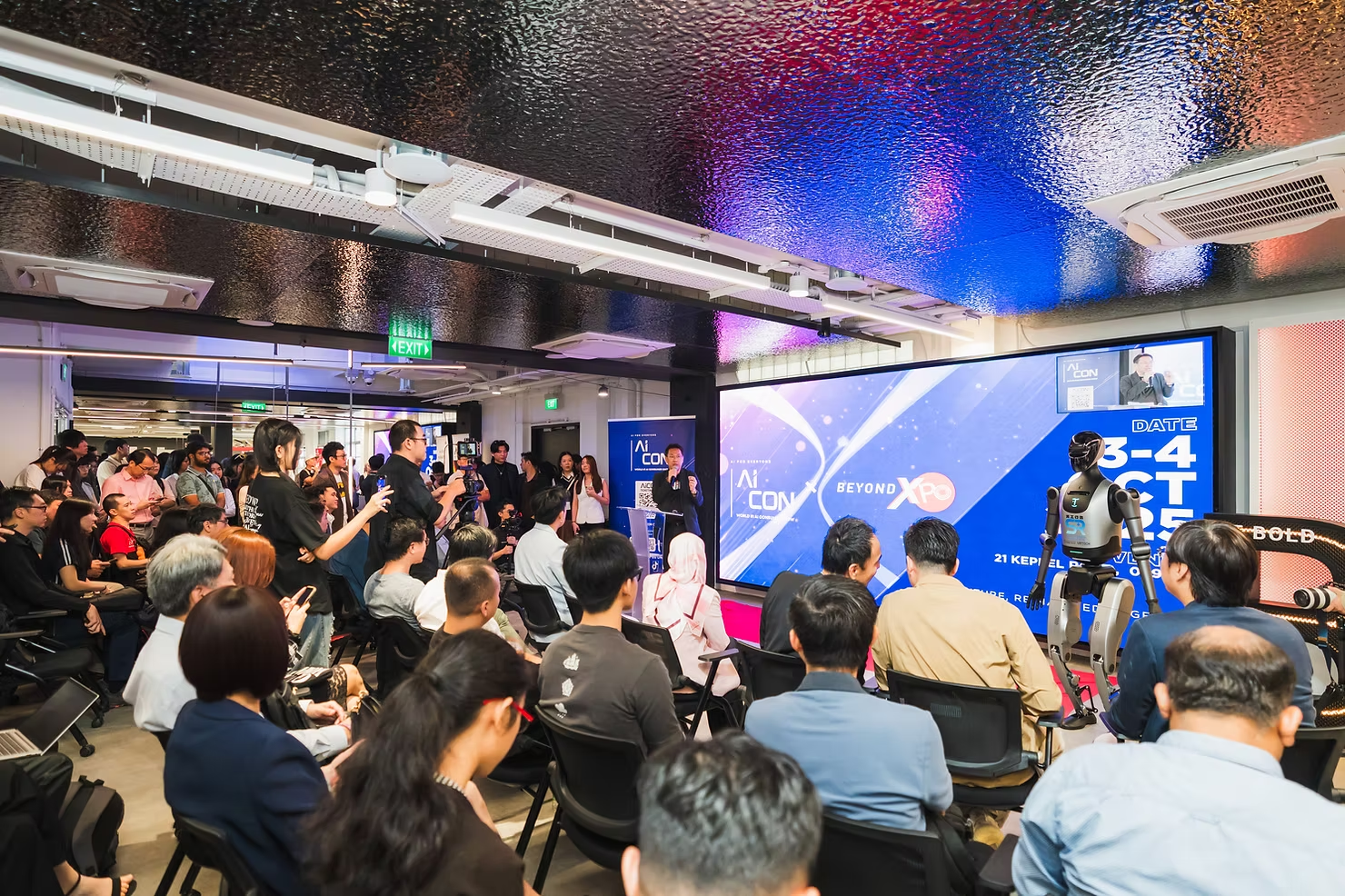
Customized Collaboration Strategy by Country
Professor Ko presented strategies utilizing each country's characteristics. "In Singapore's case, as an international financial city, it will play a significant role in enter-tech through its role as a hub for capital procurement and because AI application technology is well-developed."
"In the case of neighboring Thailand, Thailand's traditional culture and domestic cultural industry are quite developed. So there are methods like joint production. So let's maximize each country's characteristics and strengths."
Chinese Economic Network: Strategic Gateway
Professor Ko emphasized Singapore's strategic value. "We're based primarily with the US, but Singapore is an important hub and gateway to go global, especially to Southeast Asia and China. In this period of high uncertainty, securing a gateway first might be better in terms of various costs and effectiveness."
"Looking at the ethnic composition, about 70% are ethnic Chinese, aren't they? In reality, the Chinese diaspora seems to represent an even larger proportion than statistics show. From that perspective, the Southeast Asian Chinese economic network and the global Chinese economic network are quite large, so it would be good to find ways to exchange and cooperate based on this."
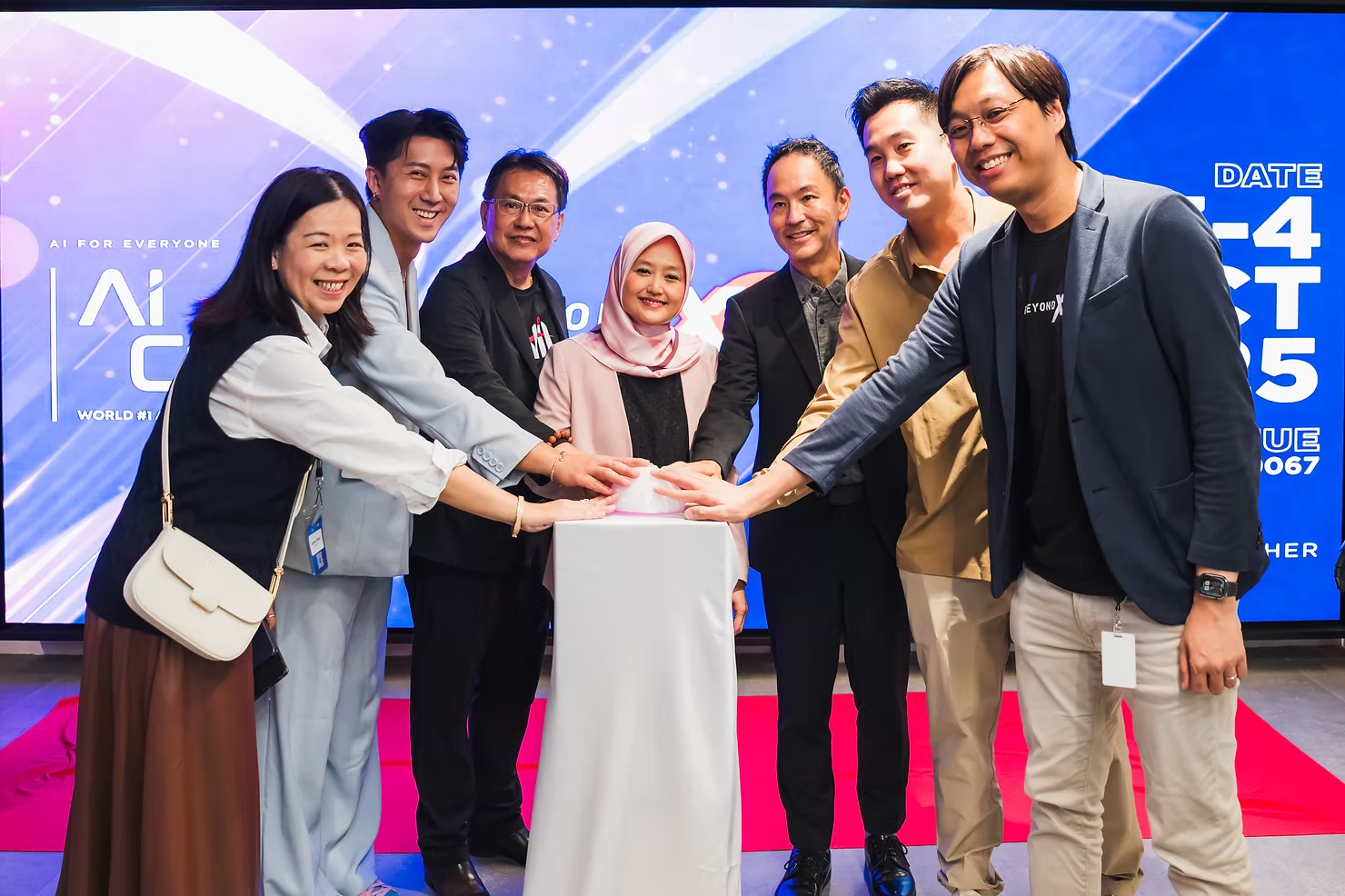
Need for Systematic Global Strategy
Professor Ko encouraged Korean companies and youth to go global. "Entry methods must be as diverse as K-content's popularity. Not just 'let's go global' without a plan, but now that our economic scale and influence have grown significantly, we need to prepare very carefully accordingly. Ultimately, we need to go global for growth potential and future possibilities. Coming abroad, I really think we need to motivate our companies and young people to continue going global."
"Most importantly, it seems to be a very important place to build up various experiments in media entertainment and various business models in Korea and succeed in the global market."
Professor Ko concluded by revealing future plans: "We'll work hard on the triangular axis of Singapore, Korea and Singapore, and the US."
Key Takeaways
1. Co-Evolution Over Export: A Paradigm Shift in Hallyu Strategy
Professor Ko Sam-seok's "Ko Sam-seok Singapore Initiative" proposes shifting Korea's cultural export model from one-way content distribution to mutual growth partnerships with Southeast Asian nations, focusing on joint investment, co-production, and collaborative content development.
2. Singapore-Korea: Perfect AI-Content Complementarity
Singapore ranks 3rd globally in AI competitiveness (Korea: 6th) with $27 billion in AI investments, while Korea leads in content creation. This complementary structure creates ideal conditions for enter-tech (entertainment + technology) collaboration, with Singapore serving as a capital and technology hub.
3. AICON as Global Platform for AI Democratization
With 2,000+ visitors over two days, AICON x BeyondXpo 2025 demonstrated its position as "the World's #1 AI Consumer Show," featuring government support from Minister Rahayu Mahzam, international partnerships including YTN World (Korea), and a theme of "AI for Everyone" that bridges technology with creativity and daily life.
4. Strategic Gateway to Chinese Economic Networks
With 70% ethnic Chinese population, Singapore offers access to the vast Southeast Asian and global Chinese diaspora economic networks, positioning it as a critical gateway for Korean content and technology expansion amid global uncertainties.
5. Enter-Tech: The Innovation Key to Sustainable Hallyu
AI-driven innovation in content production, distribution, and consumption—termed "enter-tech"—is essential for Hallyu's sustainability. This approach reduces production costs, expands consumer touchpoints, and enables human-AI coexistence in creative industries.
6. Young, Dynamic Ecosystem Embraces Korea Partnership
AICON 2025's predominantly young startup and venture participants showed strong interest in tech-content convergence. Singapore government officials, including IMDA leadership, actively pursued deeper Korea collaboration, with plans for a K-Enter-Tech Pavilion generating enthusiastic response.
7. Country-Specific Collaboration Models
Rather than one-size-fits-all approach, Professor Ko advocates customized strategies: Singapore for AI tech and capital; Thailand for traditional culture and co-production; each leveraging unique national strengths within the Korea-Singapore-US triangular axis.
8. Prepare for Tomorrow During Today's Success
While Korean content enjoys unprecedented popularity in Asia, structural challenges threaten long-term growth. The "prepare for bad times during good times" philosophy emphasizes proactive innovation and strategic partnerships before market conditions change.
[Box 1] AI CON 2025 Key Features
Date: October 3-4, 2025 Venue: BeyondX Living Lab & Incubation Space, Keppel Road, Singapore Scale: Over 10,000 participants, 100 companies/institutions, 30 brands Theme: AI for Everyone
Three Zones:
- LIVE Zone: AI technology in daily life—health, education, mobility
- WORK Zone: Corporate productivity, business keynotes, networking
- PLAY Zone: Creative content, entertainment, gaming, cosplay, esports, GenTube AI Film Fest
Special Events:
- Opening address by Minister Josephine Teo, Ministry of Digital Development and Information
- F1 Weekend linked events
- Tesla technology showcase
- Cosplay and esports competitions
- AI-based film festivals and art events
- Hackathons and student developer conferences
Education Partners: Temasek Polytechnic, Nanyang Polytechnic, etc. AI Investment: Singapore's 2025 AI-related investment totals $27 billion
[Box 2] Professor Ko Samseog's 'Next Hallyu' Core Strategies
Co-Evolution Strategy
- Shift from one-way exports to exchange and cooperation
- Support for Southeast Asian countries' domestic content industry development
- Strengthen Korea-ASEAN content industry alliance
Enter-Tech Innovation Strategy
- AI-centered innovation in production, distribution, and consumption
- Convergence of entertainment and technology
- Reduce production costs and expand consumer touchpoints
Customized Collaboration by Country
- Singapore: Capital procurement hub + AI technology (Global AI competitiveness rank 3)
- Thailand: Traditional culture + joint production
- Korea: Content powerhouse (Global AI competitiveness rank 6)
Strategic Gateway Setting
- Utilize Singapore as hub for Southeast Asian and Chinese economic networks
- Build Korea-Singapore-US triangular axis
- Strengthen virtual production infrastructure cooperation
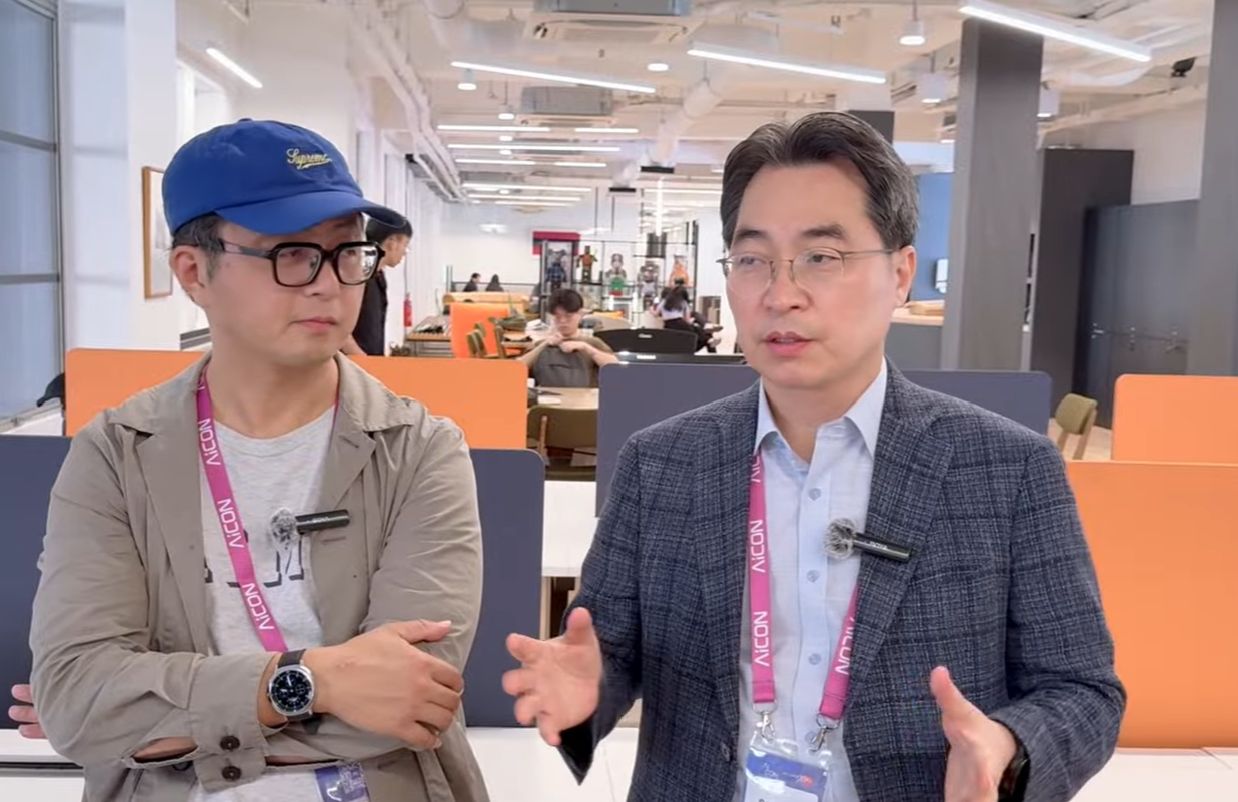
"공진화 전략에 동남아가 반색했다"
고 교수는 K-엔터테크허브와의 인터뷰에서 "싱가포르에 와서 AI 엔터테인먼트 컨퍼런스에 특별 기조연설을 하게 됐다"며 "제너레이티브 유튜브, 즉 GenTube 관련 행사였다"고 말했다.
그는 기조연설에서 '넥스트한류'의 핵심 내용인 두 가지 전략을 제시했다. 첫째는 한국과 아세안의 콘텐츠 산업 연대 및 공진화 전략이고, 둘째는 엔터테인먼트와 테크놀로지의 결합인 엔터테크 기반의 혁신 전략이었다.
"끝나고 나서 이쪽에 계신 분들의 반응이 아주 좋았어요. 이분들도 여기에 관심이 많이 있구나 생각했습니다. 특히 공진화 방법론에 대해서 궁금해하더라고요."
고 교수는 동남아시아 국가들의 반응이 예상 이상이었다고 전했다. "생각을 안 한 건 아닌데 싱가포르를 비롯한 동남아시아 국가들이 한국에 제안하기는 약간 자신들이 먼저 제안을 못 하는 그런 눈치였어요. 그런데 제가 이렇게 강연을 하니까 말 그대로 반색을 하더라고요."
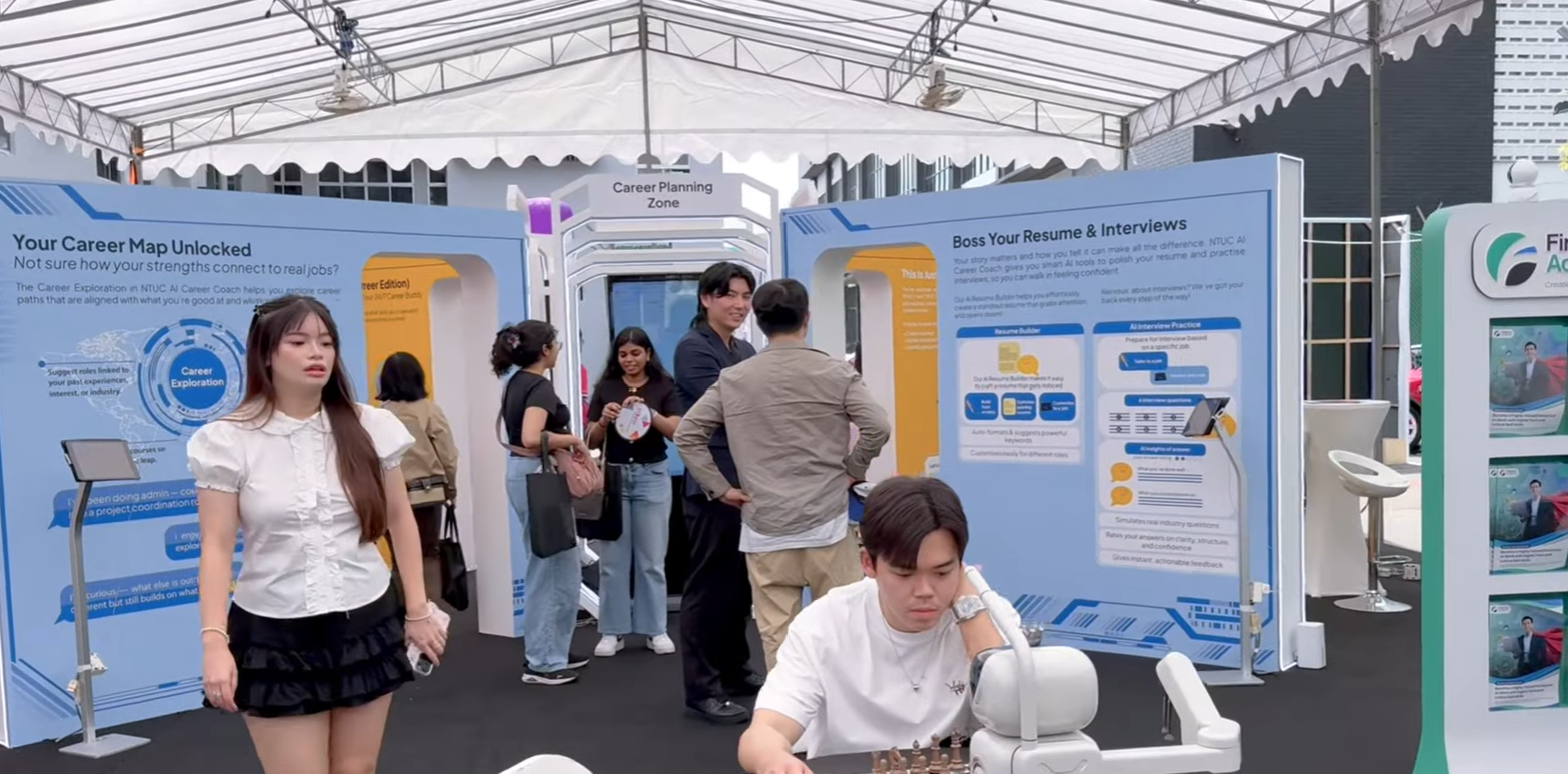
'고삼석 싱가포르 이니셔티브' 탄생
고 교수는 이를 '고삼석 싱가포르 이니셔티브'로 명명했다. "이게 먹히겠구나 그 생각을 했어요."
그는 한류의 기조 전환 필요성을 강조했다. "K-컬처가 동남아 시장에 대해서는 거의 일방적인 수출 진출이었죠. 물론 이용자 측면에서 K-콘텐츠에 대한 선호가 있었지만, 분명한 것은 우리 정부의 정책이나 콘텐츠 테이크아웃, 뷰티 기업들의 경영 전략이 수출 진출이었습니다. 약간 일방적인 형태를 띄었는데, 공진화라는 것은 우리가 한류의 기조, K-컬처의 기조부터 바꾸자는 것이죠. 교류와 협력으로 바꾸자는 겁니다. 다 같이 발전하는 거죠."
싱가포르-한국, 상호보완적 AI 협력 구조
고 교수는 싱가포르와 한국의 상호보완적 관계를 설명했다. "예를 들어서 공동 투자하고 공동 제작, 왜냐면 싱가포르 같은 경우 충분히 그런 자본이 있으니까요. 엔터테크 시대에 맞게 싱가포르 같은 경우는 지금 글로벌 AI 국가 경쟁력도 3위거든요. 반면에 한국은 6위고요."
그는 AI 분야에서는 싱가포르가 앞서 있지만 콘텐츠 영역에서는 한국이 우위에 있다고 분석했다. "그런 측면에서 보면 오히려 AI와 같은 분야에서는 싱가포르가 앞서 있고 우리가 협력을 하면 도움을 받을 수 있는 영역이고, 콘텐츠 영역은 한국이 앞서 있고 싱가포르는 발전시키고 싶어 하죠. 서로 윈윈할 수 있는 좋은 구조인 것 같아요."
싱가포르는 2025년 AI 관련 투자 규모만 270억 달러에 달하며, 아시아 및 글로벌 AI 허브로서의 위상을 강화하고 있다.
AI 기반 현지화 전략의 중요성
고 교수는 AI 기술이 균형감 있는 협업을 가능하게 한다고 설명했다. "AI가 되면 말씀하셨던 공진화, 공동 제작부터 시작해서 다양한 협업들, 이게 균형감이 있는 사업이 되게 중요하지 않습니까? 그런 게 가능하니까 다 관심이 있었던 것 같아요."
"기술들은 다 베이스가 됐고, 우리가 목표는 AI를 통해서 현지화를 하거나 또 현지 고객들한테 이해를 시키고 자기 콘텐츠를 또 현지에 맞추게 하는 거니까요."
싱가포르 정부의 적극적 협력 의지
고 교수는 싱가포르 정부의 협력 의지가 매우 적극적이라고 전했다. "싱가포르가 경제 수준이 가장 높지 않습니까? 물론 도시 국가입니다만 1인당 국민 소득이 상당히 높죠. 싱가포르에서 보니까 협력의 대상으로서 콘텐츠 산업이나 AI 분야에서 협력의 대상으로 아시아에서는 한국을 지금 많이 생각하고 있다는 그런 느낌도 받았어요."
싱가포르 정보통신미디어개발청(IMDA) 국장이 직접 참석했다. "IMDA 국장님이 오셨는데 이분이 한국에 대한 관심이 아주 높고 한국 기업, 한국 정부하고 계속해서 협력을 하면 좋겠다고 했어요. 그래서 한국에서 개최되는 여러 가지 행사에도 청장부터 시작해서 아주 관심을 갖고 참여를 하고 있더라고요. 놀랐어요."
특히 3년 전 한국을 방문했던 경험을 공유했다. "두 분이 3년 전에 한국 가셔서 버추얼 스튜디오나 CJ 같은 곳을 가셨어요. 싱가포르 사실이 동남아에서의 버추얼 프로덕션은 핵심이기도 하거든요. 가깝고 인프라들이 다 돼 있으니까. 그래서 내년에도 지금 아마 한국행을 준비하시는데 이번에는 AI가 핵심이죠."
K-엔터테크관 제안에 "너무 좋다"
고 교수는 현장 분위기가 매우 좋았다고 전했다. "AI 엔터테인먼트의 현장 분위기가 좋았어요. 왜냐면 엔터테인먼트가 강하고 기술이 강한 나라만 이게 수익 모델의 주인공이 되잖아요. 물론 싱가포르는 기술이 훨씬 강하지만 콘텐츠는 아무래도 한국이 두텁죠. 크리에이터부터 시작해서 기술까지 다 되잖아요."
"제가 내년에 이야기를 하면서 '한국 크리에이터 기업들, 한국 콘텐츠 기업들이 좀 와서 K-엔터테크관을 만들었으면 좋겠다'고 하니까 너무 좋아하더라고요."
젊고 역동적인 스타트업 생태계
고 교수는 참여 기업들의 특징을 강조했다. "참여하는 기업들이 상당히 젊어요. 젊은 스타트업, 벤처들이요. 테크하고 콘텐츠하고 결합을 지금 많은 고민들을 하고 있는 것 같아요. 그래서 상당히 역동적인 그런 느낌을 받았어요."
"좋을 때 안 좋을 때를 대비하자"
고 교수는 '넥스트한류'를 저술하게 된 배경을 인터뷰에서 설명했다. "책을 쓰면서 한류가 지속 가능할 것인가, 사실 그게 아주 큰 위기라기보다도 구조적으로 성장하기가 어려운 조건들이 지금 되고 있는 거예요. 그래서 한번 점검해 보고 어떻게 하면 한류가 지속 가능할 것이냐, 성장할 것이냐 이거를 문제 제기한 거거든요."
현지에서의 반응은 의외였다. "역시나 아시아 지역에 오면 특히 동남아시아 오면 한국 콘텐츠에 대한 선호가 너무 높기 때문에 선호나 열기를 어떻게 이용할까 이게 고민이죠. 위기라고 강조하시니까 오히려 사람들이 놀라는 느낌이에요. 다들 지금 다 좋은데 왜 위기냐? 좋을 때 안 좋을 때를 대비하자는 거예요."
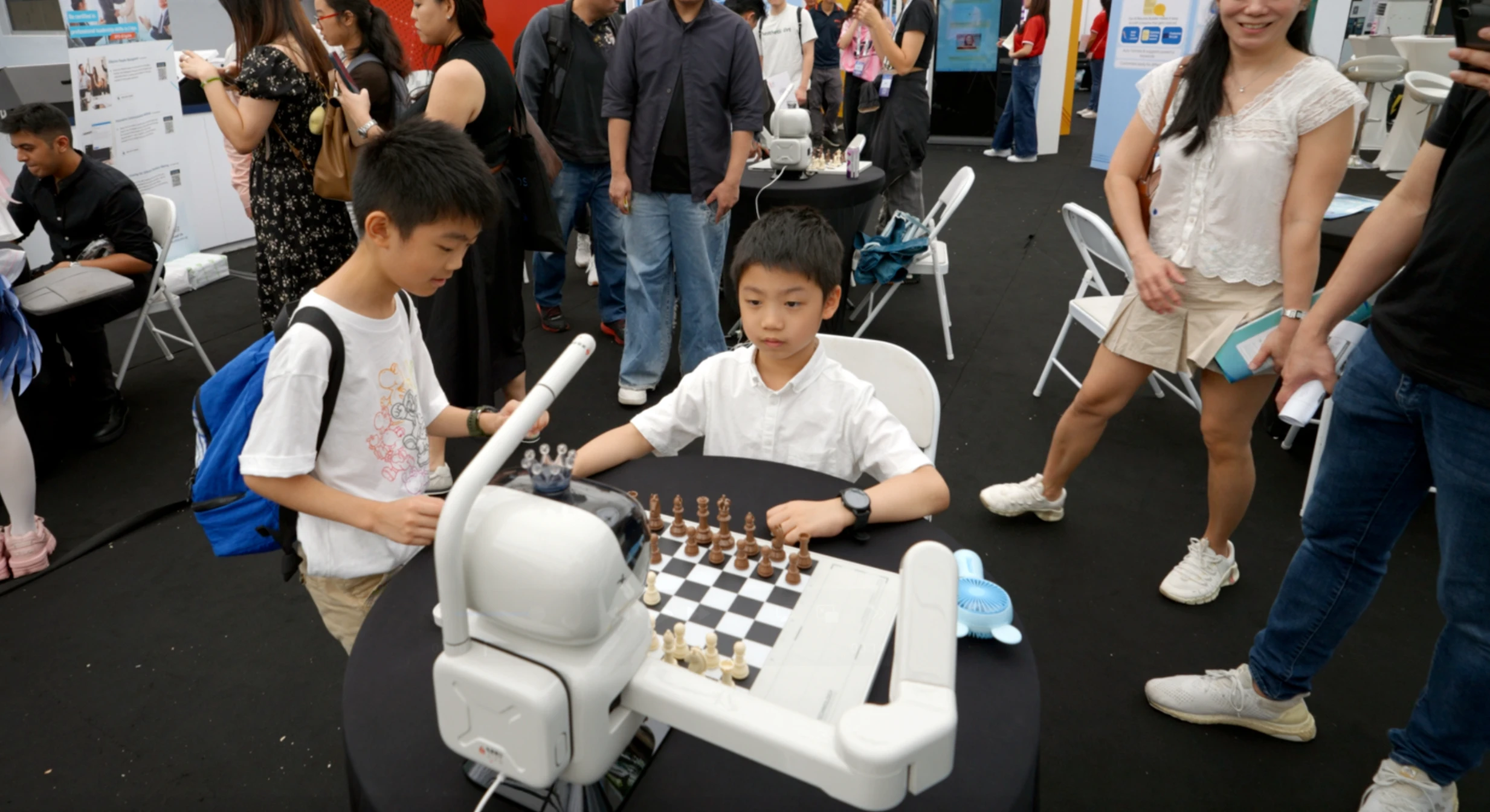
엔터테크, 한류 혁신의 핵심
고 교수는 엔터테크를 강조했다. "콘텐츠 산업이 지속적으로 성장해 왔고요. 그 성장의 배경은 혁신이에요. 그걸 생산하는 방법, 유통하는 방법, 소비하는 방식에 있어서 혁신을 했기 때문에 K-콘텐츠가 여기까지 온 거죠. 그걸 한 번 더 혁신하자. 뭘로? 엔터테크로."
"소비자들이 콘텐츠를 다양하게 즐기잖아요. 아까 보면 체스 두는 로봇도 있거든요. 제가 볼 때는 접점도 늘리고 생산 비용도 줄이면서 인간과 공존하는 기술들이 가능할 것 같아요."
국가별 맞춤형 협력 전략
고 교수는 국가별 특성을 활용한 전략을 제시했다. "싱가포르 같은 경우는 국제 금융도시니까 자본 조달하는 허브로서의 역할과 AI 응용 기술이 또 발전돼 있기 때문에 AI 기술과의 결합, 즉 엔터테크에서 상당히 중요한 역할을 할 거예요."
"인접한 태국 같은 경우는 태국의 전통적인 문화, 자국의 문화나 문화 산업이 상당히 발달돼 있는 상태예요. 그럼 거기는 또 거기대로 공동 제작이라든가 이런 방식이 있어요. 그러니까 국가마다 그 특성, 장점을 최대한 우리가 활용하자는 거예요."
화교 경제권, 전략적 관문
고 교수는 싱가포르의 전략적 가치를 강조했다. "저희는 미국하고 기반을 많이 두고 있지만, 싱가포르는 글로벌 특히 동남아, 중국 이런 쪽으로 나갈 수 있는 중요한 허브, 게이트웨이죠. 지금 이렇게 불확실성이 높은 시기에 일단 관문을 잡는 게 훨씬 더 여러 가지 비용들이나 효과성에서 좋지 않을까 생각합니다."
"민족 구성을 보면 중국계인 화교가 한 70% 정도 차지를 하고 있지 않습니까? 실제 통계보다도 화교 분들이 상당히 비중을 차지하고 있는 것 같아요. 그런 면에서 본다면 동남아시아의 화교 경제권, 그다음 전 세계의 화교 경제권이 상당히 규모가 크기 때문에 여기를 기반으로 해서 교류 협력하는 방안들도 찾아보면 좋겠습니다."
고 교수는 한국 기업과 청년들의 글로벌 진출을 독려했다. "K-콘텐츠 인기만큼 진출 방식도 다양해야 되니까요. 일단 무조건 글로벌로 가자, 대책 없이 가는 게 아니라 이제는 우리 경제 규모라든가 영향들이 많이 커졌기 때문에 그에 맞춰서 아주 꼼꼼하게 준비해서 결국 글로벌로 가야 성장 가능성도 있고 미래의 가능성도 있는 거기 때문에, 역시 외국에서 나와서 보면 정말 우리 기업이라든가 젊은 청년들이 글로벌로 계속 나가도록 동기 부여를 해야 되겠다는 생각을 하고 있습니다."
"가장 중요한 거는 미디어 엔터테인먼트의 다양한 실험들, 또 다양한 비즈니스 모델들을 한국에서 빌드업하고 글로벌 타깃에서 성공해 낼 수 있는 아주 중요한 장소인 것 같습니다."
고 교수는 마지막으로 "싱가포르, 한국과 싱가포르, 미국을 삼각축으로 열심히 해보겠습니다"라며 향후 계획을 밝혔다.
[박스1] AI CON 2025 주요 특징
일시: 2025년 10월 3~4일
장소: 싱가포르 Keppel Road BeyondX Living Lab & Incubation Space
규모: 참가자 1만 명 이상, 100개 기업·기관, 30개 브랜드 주제: AI for Everyone
3대 존 구성:
- LIVE 존: 건강·교육·모�il리티 등 일상 속 AI 기술
- WORK 존: 기업 생산성, 비즈니스 키노트, 네트워킹
- PLAY 존: 창작, 엔터테인먼트, 게임, 코스프레, e스포츠, GenTube AI Film Fest
특별 이벤트:
- 싱가포르 디지털개발·정보부 라하유 마흐잠 장관 개회사
- F1 위켄드 연계 행사
- Tesla 기술 쇼케이스
- 코스프레·e스포츠 대회
- AI 기반 영화제 및 예술 행사
- 해커톤 및 학생 개발자 컨퍼런스
교육 파트너: Temasek Polytechnic, Nanyang Polytechnic 등 AI 투자: 싱가포르 2025년 AI 관련 투자 270억 달러 규모
[박스2] 고삼석 교수의 '넥스트한류' 핵심 전략
공진화(Co-Evolution) 전략
- 일방적 수출에서 교류·협력으로 기조 전환
- 동남아시아 자국 콘텐츠 산업 육성 지원
- 한국과 아세안의 콘텐츠 산업 연대 강화
엔터테크 혁신 전략
- AI 중심의 생산·유통·소비 방식 혁신
- 엔터테인먼트와 테크놀로지의 결합
- 생산 비용 절감 및 소비자 접점 확대
국가별 맞춤형 협력
- 싱가포르: 자본 조달 허브 + AI 기술 (글로벌 AI 경쟁력 3위)
- 태국: 전통문화 + 공동 제작
- 한국: 콘텐츠 강국 (글로벌 AI 경쟁력 6위)
전략적 관문 설정
- 싱가포르를 동남아·화교 경제권 허브로 활용
- 한국-싱가포르-미국 삼각축 구축
- 버추얼 프로덕션 인프라 협력 강화

